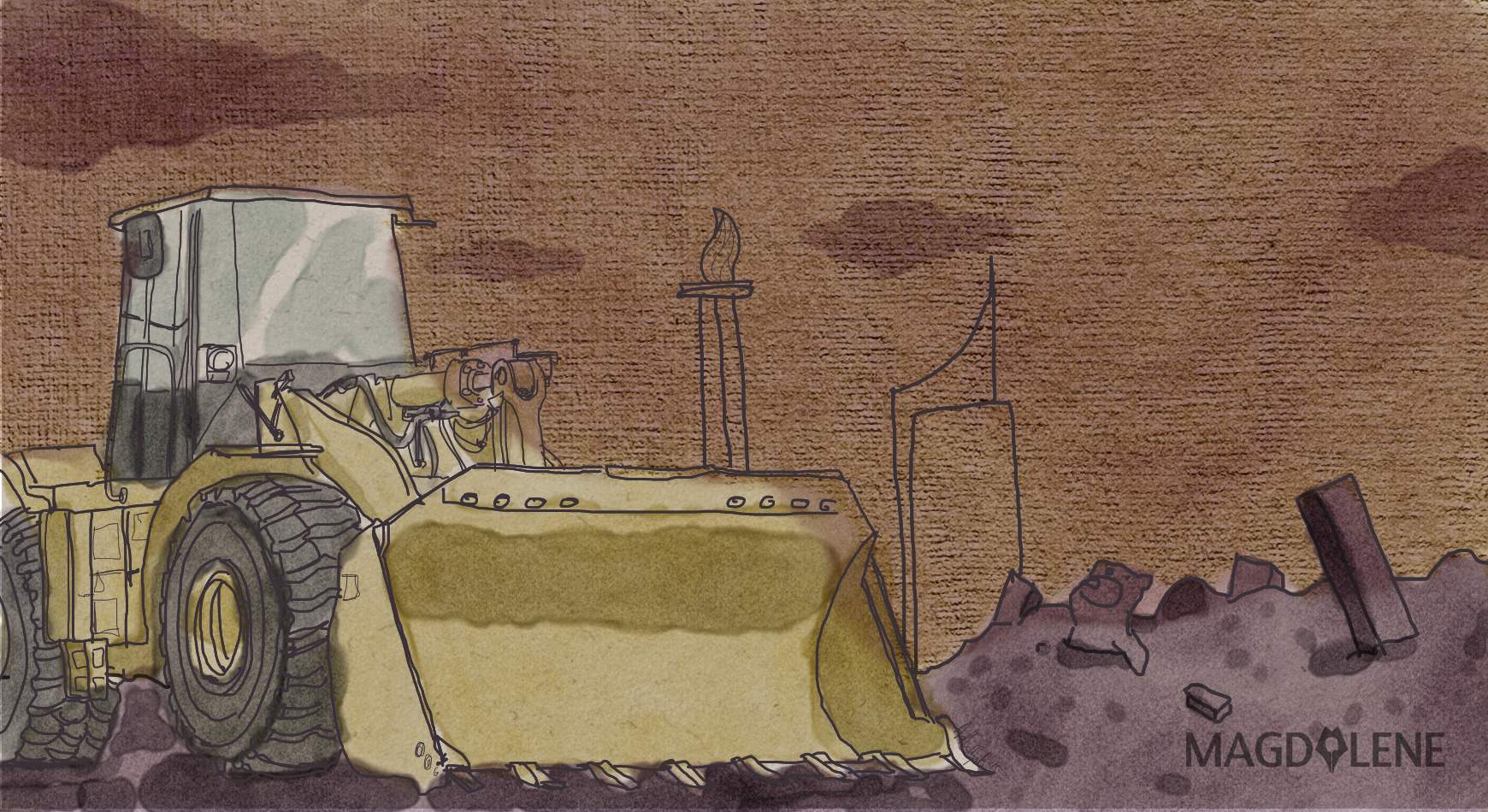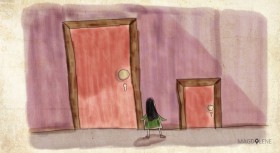Reading the news and scrolling down my timeline last weekend, I’d originally wanted to write about eviction. But on second thought, I don’t think I can. I’ve never been evicted. I’ve never stood by those evicted or done a deep enough research on the issue. The closest I had been was probably watching an eviction being conducted from a distance or interviewing victims in the aftermath.
In my book, that makes me unqualified to discuss the issue at length.
So, instead, I want to talk about us. You and me and our fascination with order.
You and me and our frustration. Of having seen what life in order could be like in the foreign cities we visited or lived in. Of having to live, instead, in perpetual chaos that is Jakarta.
A very tangible part of that chaos that we see daily are street vendors occupying our sidewalks, slum dwellers living on riverbanks and under flyovers, unruly bus drivers in traffic and kampung people in general.
They worsen flooding by illegally occupying riverbanks, often caught littering. Uneducated, they live a very unsanitary lifestyle, and are representations of everything that defies order according to our logic.
Our empathy and sympathy aside, quietly we see them as standing between us and the city we long to have. We see them as the problem, causing flooding, traffic and making our urban environment chaotic. But in fact, they are merely the symptoms of a more fundamental issue of our incapacity in managing our cities.
Jakarta and Jakartans are by all means not alone in this. This account on urban development in Delhi noted how the wiping out of a shanty town had been documented by the media and the public as “a return to order” and “good governance” in an emerging “world class city.”
It is a segment of society that is allowed to be there until we do not want them there. The government, the economy and the established system label them informal. Because they do not fit the logic of the order.
Indeed, cities with their high-paced life and often one-track mind with regard to development, rarely have the patience to accommodate a different logic which is at play in the so-called informal sector.
Even we, as the middle class of this (almost) lawless state, refuse to sit back and try to understand this different logic that might not fit into our idea of the good life. We often forget that a city is a place where ideals meet, clash and collide, negotiate and eventually co-exist. And that ours might not be the only one.
Because we’ve already dreamed of Singapore. We dream of Seoul. We dream of strolling along our riverbanks as we do along the Thames and the Rhine.
We dream of morning walks in Jakarta’s very own Central Park that is not a mall. (Oh, by the way, if you Google “Seneca village” you may never think of NYC’s Central Park the same way again.)
With all the imagery of a better quality life, very rarely do we reserve space for ideals that might not be in line with ours. We don’t understand how people that lived in slums could have dared reject to be upgraded to high-rise apartment units. With elevators, security guards, CCTV and all. Oh, and grease traps in their sinks!
With all these ideals we have of a good urban life, we care not to reserve time and patience to understand the process of getting there. To understand who should have been involved in the process and who should not have been left out.
Or, wiped out.
Some likeminded friends argued that “wiping out” the slum dwellers and the informal street vendors is not a solution. Not an answer to our problem.
I’d have to beg to differ. It is a solution to our (very short term) problem. Us, the 10 million. Just not to theirs, the 2,000 unruly people. In an urban era defined by the mushrooming of cities as growth machines, like it or not, anything outside the system are only seen as liabilities. And for the sake of progress, development and putting things in order, liabilities should be kept minimum. Two centuries ago, even slaves were seen as an asset.
Now, back to order. Back to our fascination.
It gave me goosebumps to witness that we cheered upon how order was finally made along the riverbanks. Law enforcement at last! That was probably what most of us said in our heads.
Witnessing that made me realize that our fascination with order stems from a deeper longing for control amid uncertainties. We are so used to seeing the law bent and twisted – the rich and powerful buying it, the poor refusing to abide by it. Meanwhile, the opportunists make money out of it.
And we – the law-abiding, tax-paying citizens who never use the services of a calo (middleman) – are stuck in the middle. So stuck and frustrated that we justify all means as long as the end is the order that we’ve long dreamed of.
So stuck and frustrated that we forget that if our city seems chaotic, perhaps – as a noted urbanist put it – it might just be in an order that we don’t understand. Or, refuse to understand.
Anissa S. Febrina is someone whose first love is Jakarta, currently with a burning question of why we have become the society that we are today.








Comments